A Hive of Happy Honey Bees
April 8, 2021Aum Namah Sivaya
April marks the start of our island's swarm season for honey bees. As more and more flowers bloom, wild hives begin to grow quickly. When they get too big, the queen leaves with half the hive to start a new one somewhere else. Since honey bees use a pheromone that smells like to lemongrass oil to mark where "home" is, you can simply set up a box, put some essential oil in it and wait. Before you know it you might just have some free bees! During our most recent celebration of Ardra an auspiciously timed swarm of bees moved into one of our oil-baited bee hives.
While our monks don't have a giant honey producing operation anymore, our affinity for bees remains and it's always nice to have them around. Once this hive grows big enough it will be able to produce honey for our temple. Perhaps to be poured over Lord Nataraja during another celebration of Ardra!
Aum.
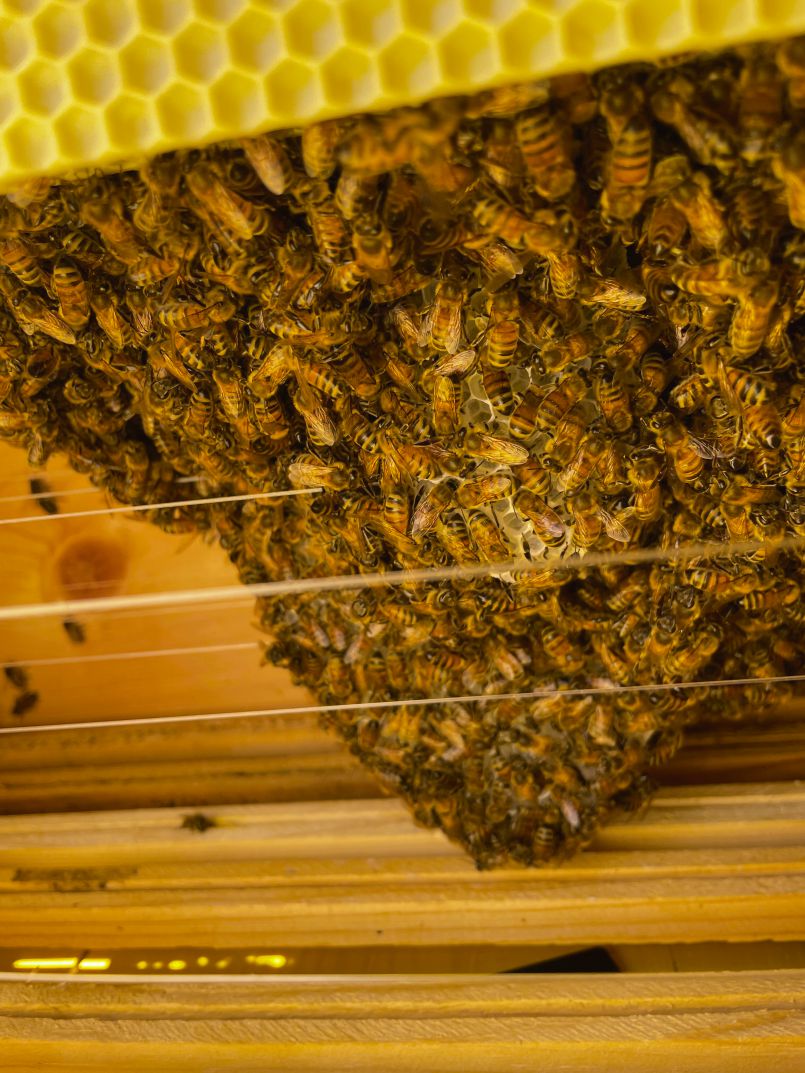
A few days after their arrival, this new colony of bees was already far along in their initial comb building
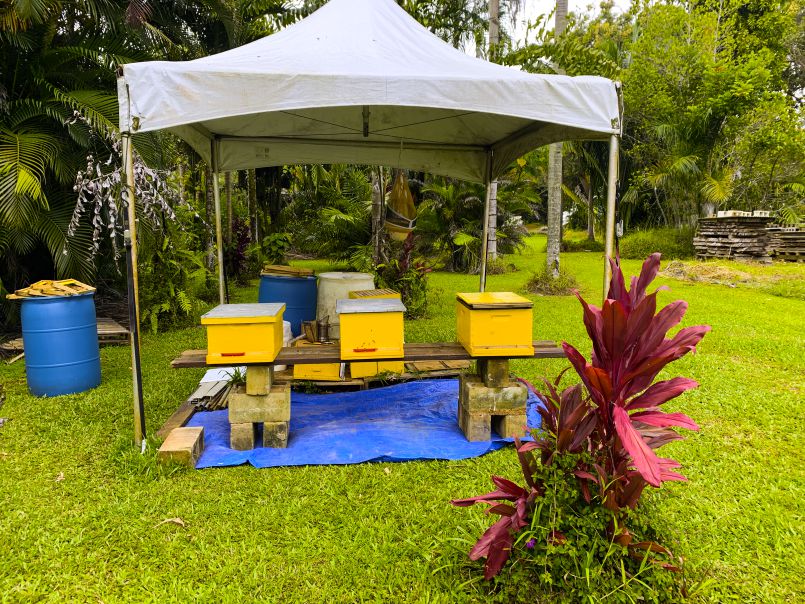
Out at the humble bee tent we have three hive boxes. With the season for swarming bees ramping up, it\
s a good time to prepare some more hives'
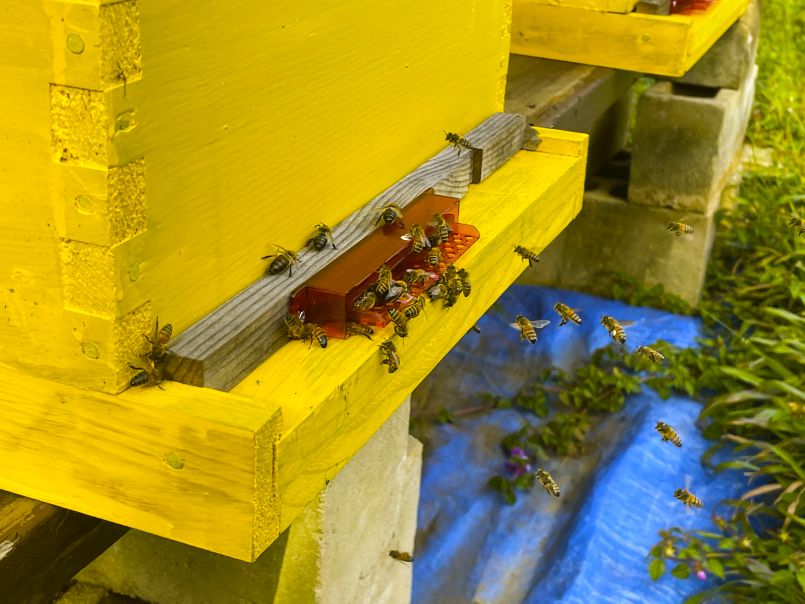
It\
s a sunny day and the bees are busy harvesting nectar'
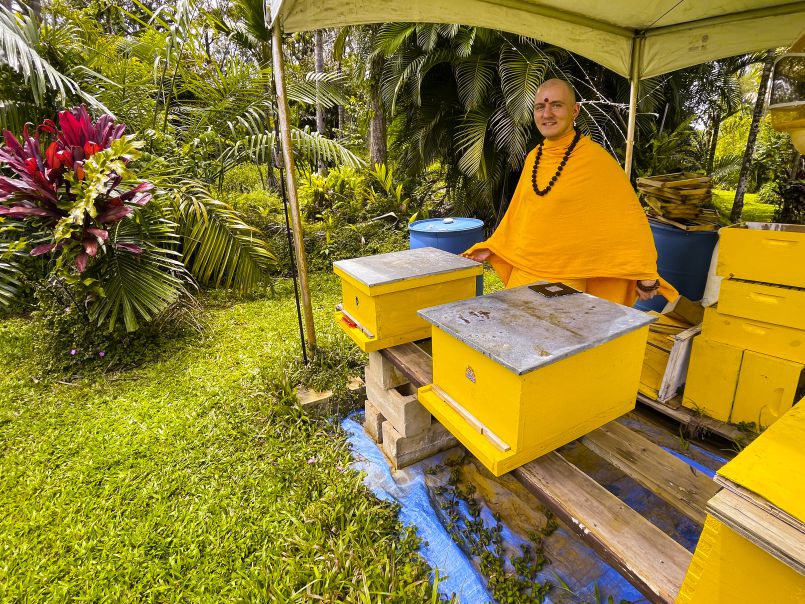
Jayanatha shows us the bees that arrived during our monthly Ardra abhishekam
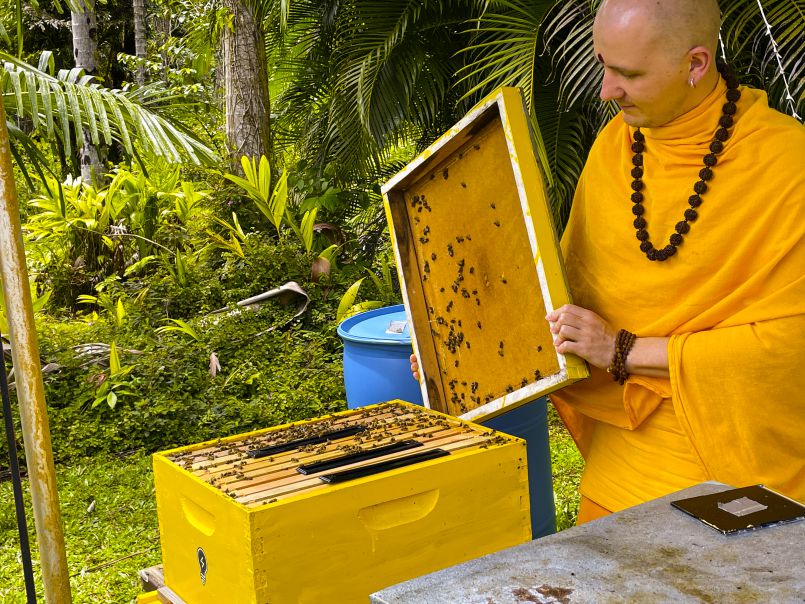
It\
s been less then a month and they\'ve filed over half of their initial box'
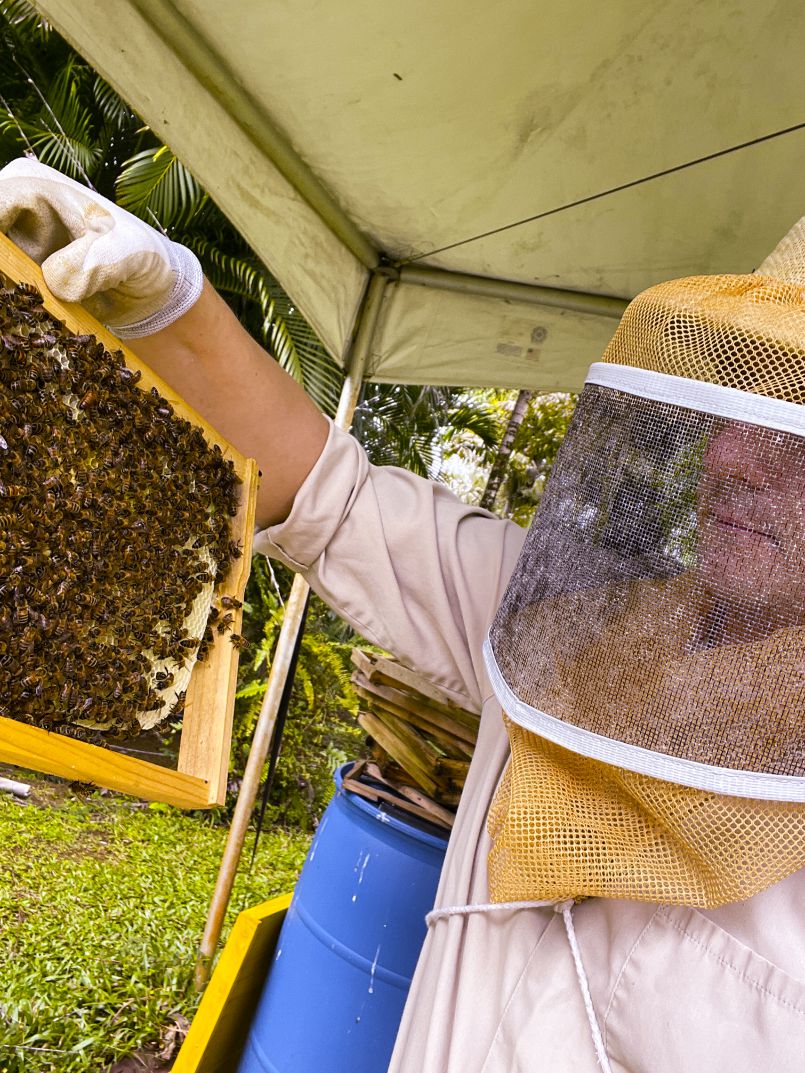
We inspected the hive last week
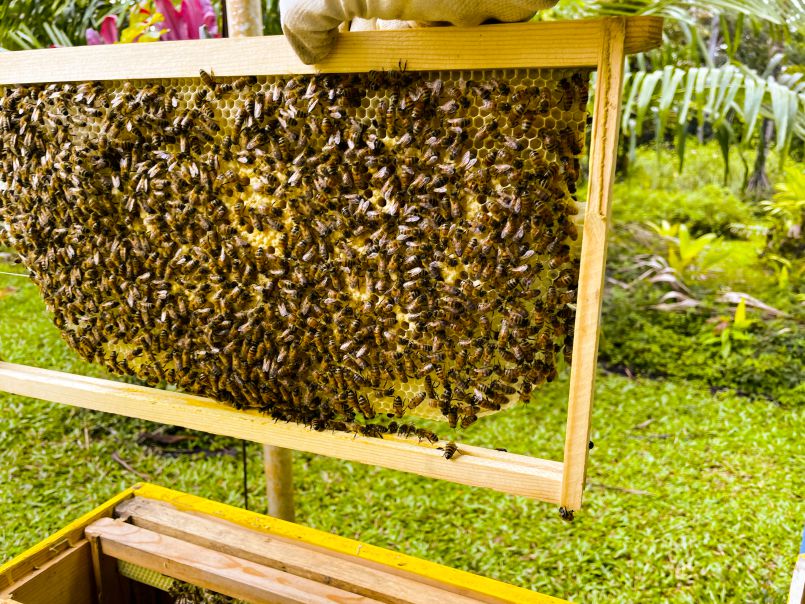
They already had many brood frames like this one, full of baby bees about to hatch (see the white, bumpy comb cells in the middle?). The many bees on the frame are nurse bees. They\
re keeping the frame at the perfect temperature. '
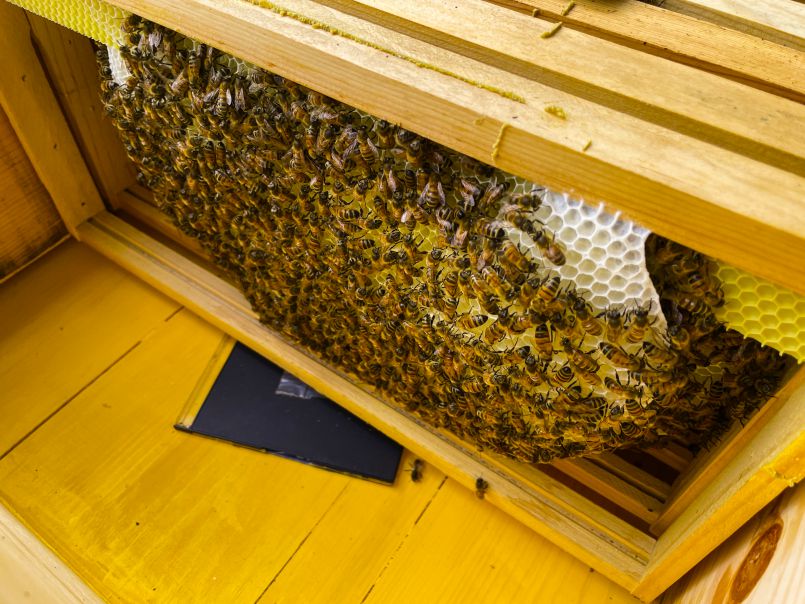
Not long and their population will double
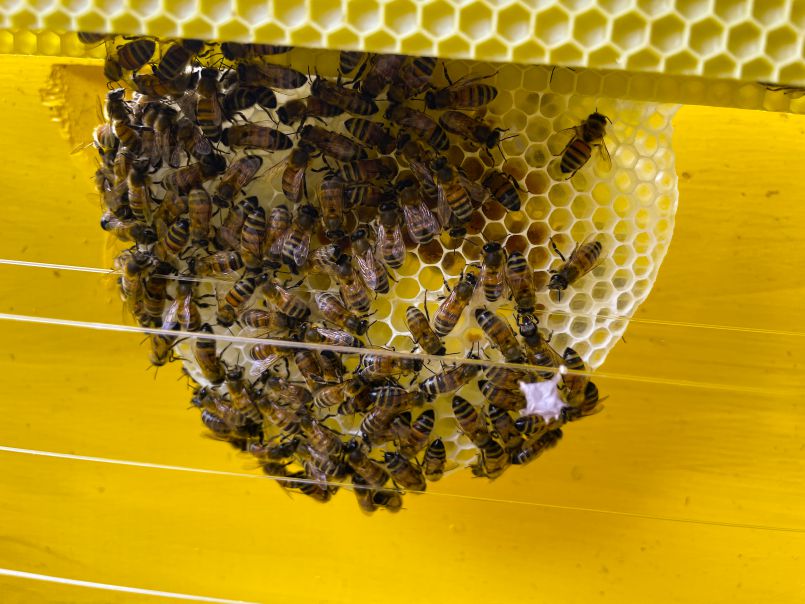
They\
ve drawn 6 of their 10 frames of comb. Here, they\'re beginning to work on the 7th frame.'
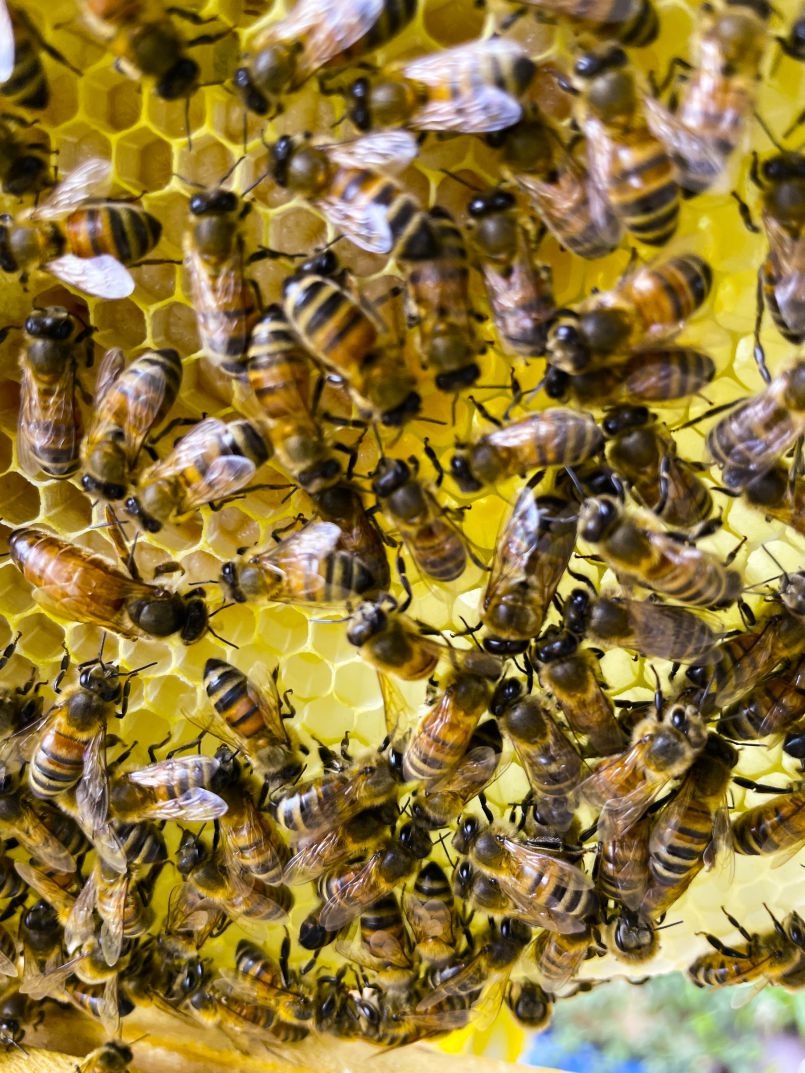
On another frame we spot the queen. Can you see her?
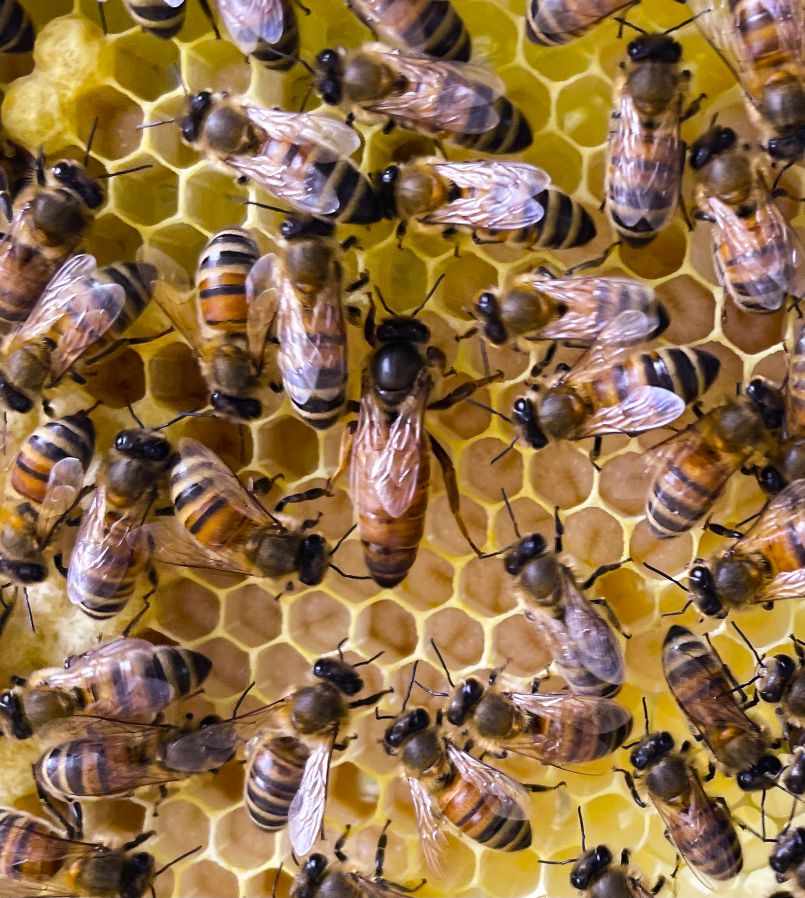
There she is! A hive\
s whole temperament can depend on the pheromones that she produces. Thankfully, this hive is very friendly. Aum. '
}
];